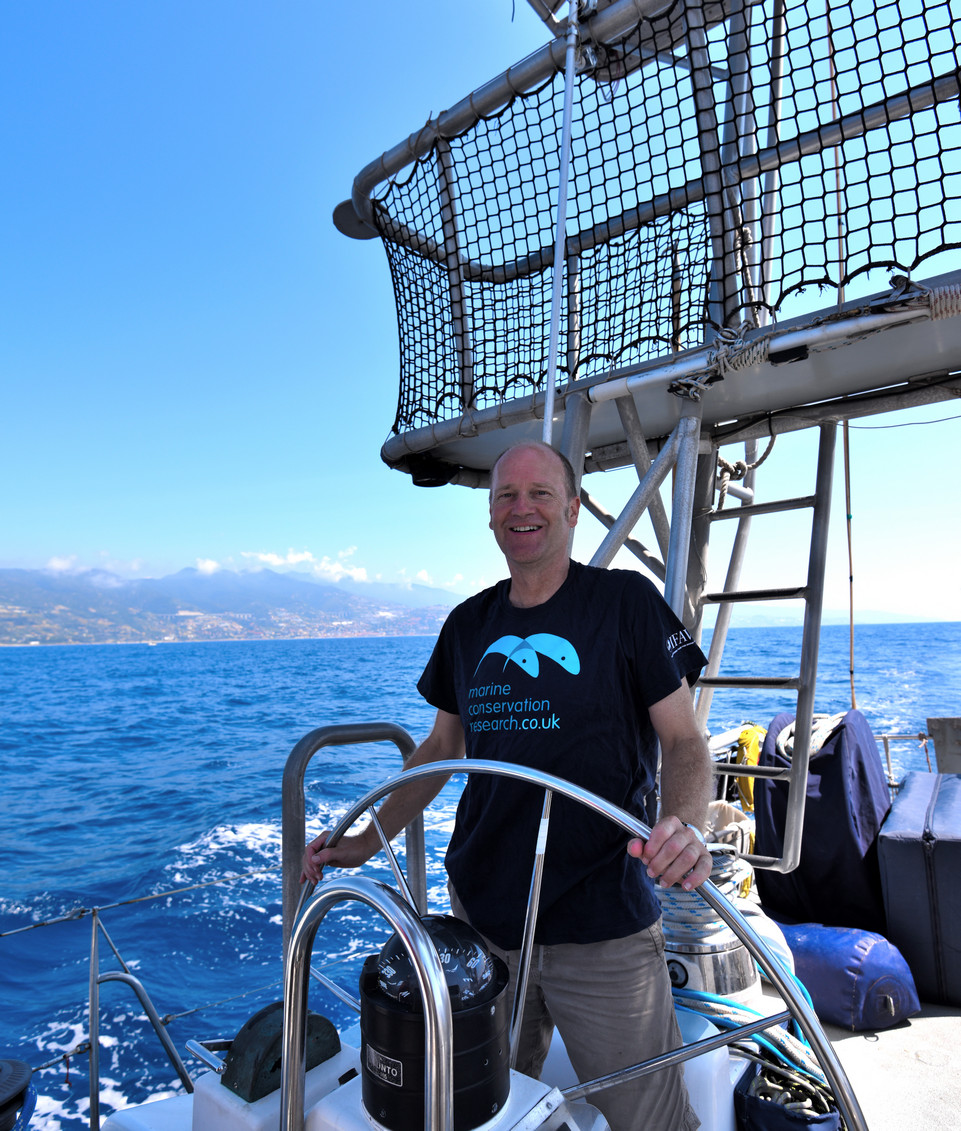
Simon Ingram, Associate Professor of Marine Conservation at University of Plymouth, recently completed a 10 day stint aboard Song of the Whale, having previously worked on Song of the Whale in the Ligurian Sea the mid 1990s. Here he writes about what a great experience it was to work with the team again in the same sea area 24 years later ….. MCR and the Song of the Whale provide state of the art passive acoustic survey capability but also of great importance are the training and practical opportunities they offer for young cetacean scientists to learn skills and work in the field as part of a dedicated survey team. Many of my contemporaries from my previous time on Song of the Whale are now established cetacean scientists working to improve knowledge and conservation for these vulnerable and cryptic animals. It was a pleasure to work with the next generation of marine mammal biologists from a number of different countries and experience their enthusiasm and energy as they joined in with the whole range of activities on board, from collecting important survey data to cooking and washing up! Indeed although I have been working on marine mammals for 25 years, I was trained in the boats complex equipment by Jonny, a young scientist half my age who clearly has a bright future ahead of him in cetacean research. Boat based field work requires a real team effort and everyone on board pulled together to keep the boat sailing and keep the survey on track.
During my time on the boat we had some fantastic encounters with fin whales, dolphins and sperm whales and as we took identification photographs I couldn’t help wondering whether some of these were the same individuals I had photographed back in 1994. Whales can live to a great age and individuals alive today will doubtless have experienced changes to their environment due to human impacts, not least of which is the increase in ship traffic and related ship noise. As we monitored the hydrophones sometimes it was difficult to hear the echolocation clicks of deep diving sperm whales over the loud, rhythmic sound of ships’ propellers. Nevertheless the beauty and wildlife of the Mediterranean never fails to disappoint and we were treated to a diverse array of wildlife sightings including sharks, turtles, rays, swordfish as well as all the whale and dolphin species that make this sea their home.
My time on board ended with a visit to Monaco, one of the jewels of the Mediterranean, and as we prepared the boat for VIP visits I couldn’t help wishing that I could continue working on board the boat as it continues this important survey across the rest of the beautiful clear blue Mediterranean Sea.
Sorry, comments are closed for this post.